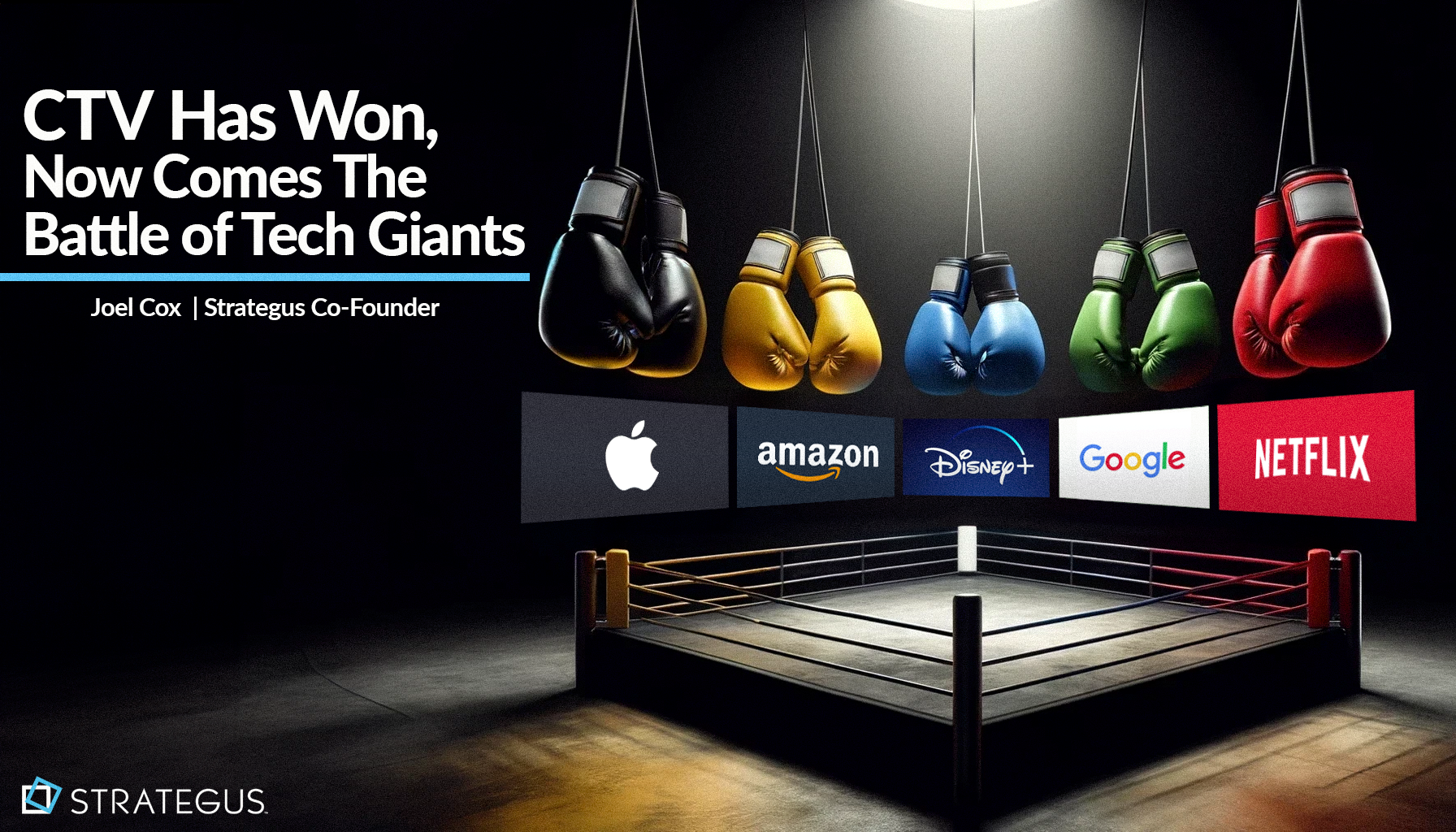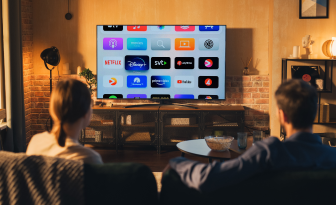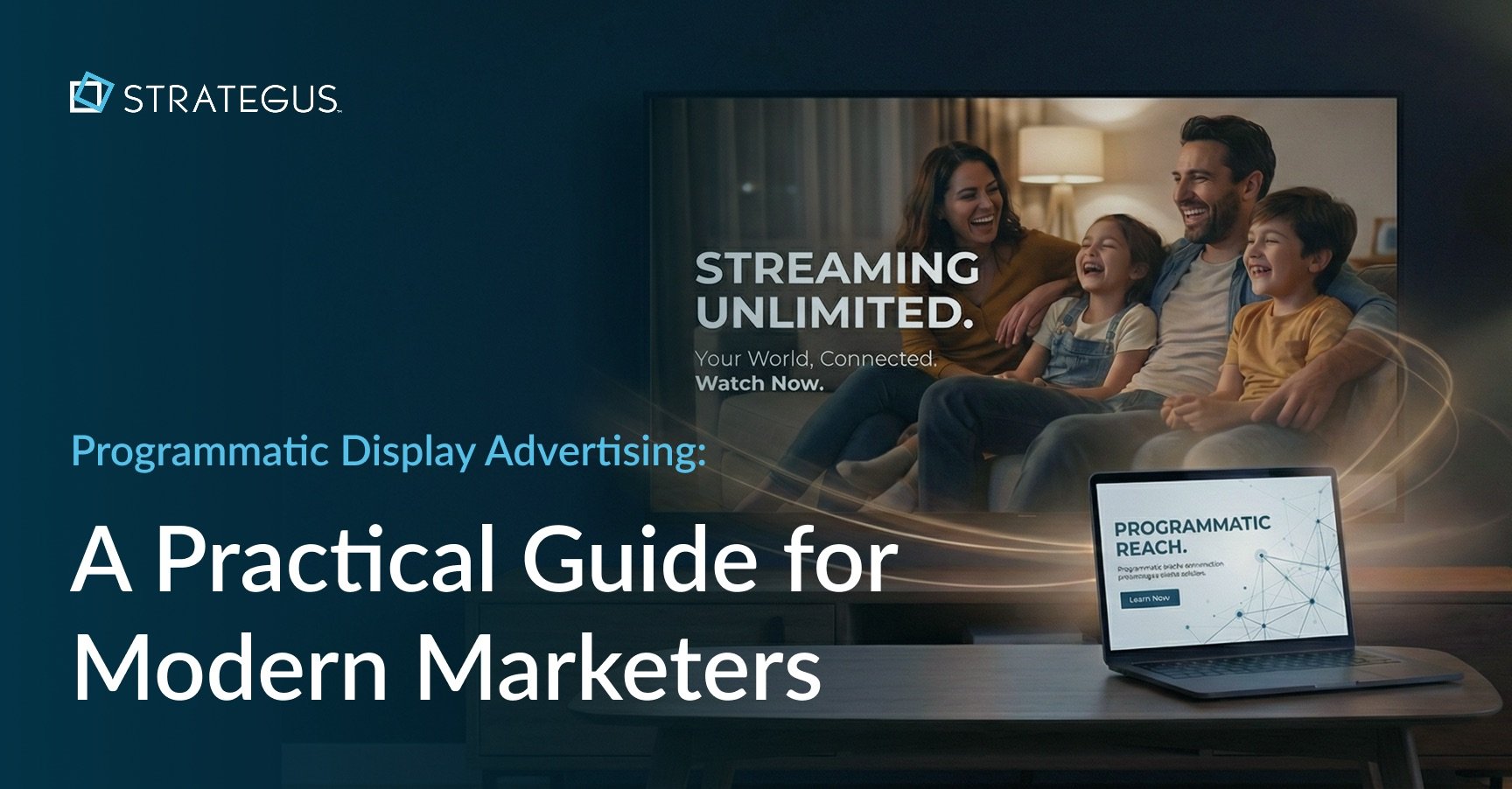- Home
- Strategus Blog
- CTV Has Won, Now Comes the Battle of the Tech Giants
CTV Has Won, Now Comes the Battle of the Tech Giants
 Joel Cox
Joel Cox
6 minutes read

Who will be the winner with Amazon, Netflix, Google, Apple, and Disney battling for CTV supremacy?
Just a few years ago, a phenomenon called cord-cutting became mainstream, referring to viewers who decided to cancel their cable and satellite subscriptions and begin streaming their TV over the internet instead. What began as a trend has grown to a once-in-a-generation transformation. As has always been the case, marketers tried to keep pace with how audiences consumed their media. As a result, advertisers faced the complicated decision of whether to start shifting their spending from linear TV to connected TV (CTV) too.
CTV undoubtedly appeared to be the future, packed with more advantages for viewers and marketers alike. But linear TV held some key advantages: familiarity, reliable measurement, and a host of prestige programming and live events that couldn’t be found elsewhere.
Today, though, CTV seems to be overtaking linear TV and it isn’t looking back. According to recent research from Nielsen, 75% of U.S. households now own a CTV device, and streaming accounted for 36% of total TV viewing in December 2023, compared to 28% for cable and 23.5% for broadcast TV.
A New Arms Race
This rise in CTV has been driven in large part by the investments of the world’s largest tech companies: Amazon, Apple, Google (YouTube), and Netflix. After building viewership by investing unfathomable quantities of money and resources into a growing collection of original and prestige programming, the tech giants are now turning their attention to live programming — and especially sports—which had been linear TV’s last line of defense. As with their investments in original content, the tech giants know this arms race is something their linear counterparts have zero chance of winning.
In January, Netflix announced that it would become the new home of WWE Raw and other wrestling content. Amazon continues to expand its sports programming, signing up major sports leagues like the NFL, MLB, and the English Premier League. And Apple TV streamed live baseball throughout the past two MLB seasons and recently added MLS.
It all adds up. Google paid what’s estimated to be $2.5 billion for YouTube’s NFL Sunday Ticket. Apple also paid $2.5 billion for their 10-year MLS rights deal. Amazon is paying $1 billion a year for Thursday Night Football. The list keeps getting longer. And the prices keep getting higher. The playing field is shifting irreversibly toward CTV and is quickly being dominated by the tech giants who are replacing legacy media and paying the sky-high cost of entry.
So how should advertisers now respond? Let’s first take stock of the key players.
Growing Portfolios and Shifting Strategies
The intersection of Big Tech and CTV is clearly disrupting the landscape for advertisers, particularly as the world’s largest companies make bids to one-up each other with new content opportunities. Recent strategic shifts include the following:
Amazon
The company recently announced that its Prime Video service will become ad-supported by default — a seemingly subtle move to viewers with groundbreaking implications for marketers. Overnight, Amazon will have more than five times the advertising audience of Netflix (Netflix itself needed a year to hit 23 million ad-supported subscriptions). Amazon is building this advertising audience on top of an unparalleled collection of data from its retail media network, as well as an in-house DSP and the world’s largest marketplace and cloud computing provider. It’s fair to say that Amazon has the strongest resources heading into this CTV battle, and we should expect them to deploy those resources aggressively as they build out their ad stack and aim to acquire more live sports rights.
Netflix
While Netflix’s ad-supported growth has been more modest than Amazon's, the platform notched a different win recently over legacy media companies. Netflix’s meteoric rise began by licensing iconic legacy content and folding it into its streaming catalog, but the company had to pivot to producing prestige programming of its own after those legacy providers pulled the licenses. We’re now seeing legacy media players wave the white flag and begin licensing that content back to Netflix again. These infusions of new content to the Netflix platform will help the company maintain its streaming lead over its aggressive competitors. There is even speculation that HBO could be for sale, and Netflix is considered a likely buyer.
Google/YouTubeTV
The growth of YouTube TV is one of the most remarkable trends in media — the service is the single fastest-growing product in Google’s entire portfolio. According to Insider Intelligence, YouTube TV grew by 48% from October 2022 to November 2023. That dramatic progress was driven in large part by the service’s acquisition of NFL Sunday Ticket, demonstrating the potential subscriber windfall these companies can gain by investing in popular sports programming. Of course, not everything is positive for Google at the moment, as the specter of a Department of Justice investigation continues to hang over the company’s operations.
Apple
Apple brings with it its own streaming service–and a very successful one at that (including an Oscar for Best Picture - a watershed moment for streaming platforms). And now, they’re diversifying and adding to their premium content offerings with their bold move to purchase exclusive MLS rights plus offer one of the best soccer players in the world a revenue share on subscriptions. There is also widespread speculation that they too will build and launch a DSP to reach both Apple users and AppleTV+ streamers - an audience that, since the launch of App Tracking & Transparency (i.e. iOS 14.5+) rocked the marketing world, has become both very desirable and elusive. Just like Amazon, they’ve entered the CTV arms race with a bounty of diverse and valuable resources.
Disney
While Disney itself is not a tech company in the same mold as Amazon or Google, the company has undoubtedly evolved beyond just a legacy media property and built its own formidable roster of ad tech partnerships and a very compelling flywheel. Of the non-tech native companies, Disney has the best shot to thrive in the new CTV era. Advertisers will need to keep an eye on Disney, particularly as they seek to take advantage of all the innovations available with their Disney+ service.
Making Bets and Maintaining Flexibility
So who will be the winners of this new CTV battle royale? With tech companies continuing to wield massive resources, and media companies on their own to explore potential mergers and sales, one thing we know for sure is that the tech companies will be the winners here. And the legacy media companies will crumple or consolidate one by one.
As advertisers respond and consider how to allocate their TV marketing spend with these tech giants, there are a few important considerations to pay attention to. The intersection of content with placement and targeting will continue to play a vital role, as marketers seek to use data to find and target their desired audiences, wherever there may be ad-supported streaming content. Evolving content offerings and streaming rights will help dictate where those audiences gravitate toward.
At the same time, measurement, attribution, and reporting will only accelerate in importance as advertisers shift their focus to emerging platforms and players. Optimizing according to these outputs will give advertisers more confidence to test effectiveness on different streaming platforms. At the same time, advertisers are also wise to still keep an eye on targeted linear opportunities even as CTV gains favor. Marketers who use tools to evaluate their performance across all content platforms and services will be best positioned to maximize ROI and determine the best path forward. And that will probably be the best gauge of which of the tech giants end up on top.

Joel Cox keeps Strategus ahead of the curve by driving ongoing product enhancements and forging new integrations across the industry. He’s been setting the pace of innovation since co-founding Strategus in 2013. His past work has been featured in Ad Exchanger, Ad Week, The Current by The TradeDesk, and more.
Strategus is a managed services connected TV(CTV) advertising agency with over 60,000+ campaigns delivered. Find out how our experts can extend your team and drive the result that matter most.
Talk to an Expert
Seeking a Custom CTV Strategy That Delivers?
What to read next

Franchise Advertising in 2026: How Connected TV Helps Local Brands Scale Nationally
Franchise advertising looks simple on paper: the franchisor sets the strategy and runs national-level campaigns, and franchisees support with...
10 minutes read

Programmatic Display Advertising: A Practical Guide for Modern Marketers
Programmatic display advertising is a staple for most marketers. It's familiar, widely used, and often the default choice in digital campaigns. But...
11 minutes read

TV Attribution Explained: How CTV Delivers the Proof Traditional TV Never Could
Traditional TV advertising was a black box. You’d run a campaign, the media plan would look solid, and then… you’d wait. Maybe site traffic ticked...
13 minutes read

What Is Cost Per Acquisition and How Does CTV Fit In?
Marketers have been able to track the cost per acquisition (CPA) across digital channels using tracking pixels and attribution models to determine...
9 minutes read





















